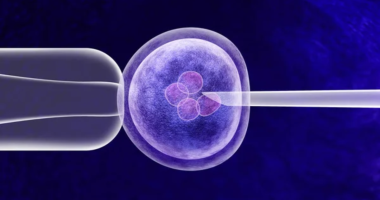Heart attack symptoms: people who experience an NSTEMI probably have a heart that can continue to pump normally. However, once you’ve had a mild heart attack, you’re at an increased risk of another, more damaging attack. “It’s time to get serious,” Dr Campbell said sternly. “It is extremely important to understand that how you live your life and manage your risk factors going forward will impact what happens to you next.”
A mild heart attack – NSTEMI
The NHS explained that a NSTEMI occurs when the blood supply to the heart is “partially blocked”.
“As a result, a smaller section of the heart may be damaged,” the NHS added.
“However, an NSTEMI is still regarded as a serious medical emergency.”
The symptoms of a “mild” heart attack may feel the same as a more damaging heart attack.
Plus, people experience heart attacks differently; for example, what one person considers chest discomfort, another person may describe as painful.
The best way to be prepared for a heart attack – should it occur – is to recognise the symptoms early on and dial 999 immediately.
Symptoms of a heart attack can include, but does not need to be all of the following:
- Chest pain
- Chest pain that travels to other parts of the body
- Lightheadedness or dizziness
- Sweating
- Shortness of breath
- Feeling sick (nausea) or being sick (vomiting)
- An overwhelming sense of anxiety (similar to having a panic attack)
- Coughing or wheezing.
While waiting for an ambulance, the NHS recommend slowly chewing on an aspirin and remaining calm.
The aspirin helps to thin the blood and improve blood flow to the heart, while remaining calm is to “avoid unnecessary strain on your heart”.
Am I at risk of an NSTEMI?
The leading cause of any type of heart attack is having coronary heart disease.
If you already have this condition, the arteries supplying blood to your heart are already narrowed.
While the condition can’t be cured, treatment can help to minimise the risk of a heart attack.
Lifestyle modifications include being a non-smoker, exercising regularly, and taking any medication prescribed to you.
“The best type of activity to keep your heart healthy is aerobic activity,” the BHF confirmed.
Aerobic activity includes “any repetitive, rhythmic movement that involves large muscle groups”.
Examples of aerobic activity include walking or cycling, as such exercises require more oxygen, meaning the heart and lungs have to work harder.
Considered a way of training the heart muscle, the more regularly you do such activities, the more efficient the heart becomes.
Post source Daily Express









